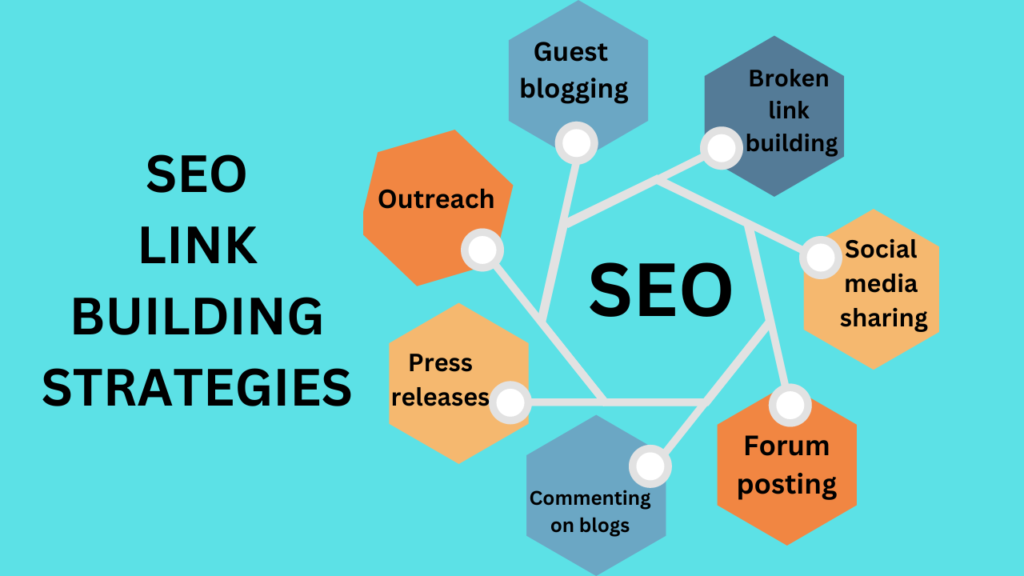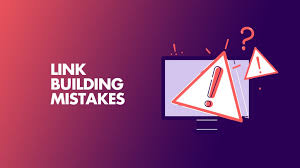
How to Build Links for SEO is one of the most common questions people have when they want to get more traffic from search engines. Link building is the process of getting other websites to link back to your site. These links work like votes of trust, telling Google and other search engines that your content is useful and worth showing to more people.
However, it’s not just about collecting as many links as possible. Quality matters more than quantity. Links from trusted, relevant websites in your industry can boost your rankings, while links from spammy or unrelated sites can do more harm than good.
Learning how to build links for SEO means understanding what makes a link valuable, then using smart strategies to earn those links naturally. In this guide, we’ll explain what link building is, why it’s important, and show you practical, beginner-friendly ways to get high-quality links that improve your visibility in search results
.
What Is Link Building, and How to Build Links for SEO?
Link building means getting other websites to create links that lead people to your website.
Think of each link as a recommendation or “vote” for your site. When a website with a good reputation links to you, it’s like they’re telling Google, “Hey, this site is worth checking out!”
Google notices these “votes.” If many trustworthy, high-quality websites link to you, Google starts to see your site as more reliable and important. This can help your website show up higher in search results, making it easier for people to find you.
It’s not just about getting a lot of links—it’s about getting links from websites that people (and Google) already trust.
Benefits of link building:
- Higher search rankings
- Increased referral traffic
- Improved brand authority
- Faster indexing by search engines
The Golden Rule of Link Building
Not every link on the internet is equally valuable. Think of links like recommendations. If a well-known, trusted website links to you, it’s like getting praise from an expert in your field — people and search engines take it more seriously. On the other hand, if you get a lot of links from unknown or unreliable websites, they might not help much, and sometimes they can even hurt your reputation. In many cases, one strong, trustworthy link can do more for your visibility and credibility than dozens of weak ones.
When assessing link quality, look for:
- Relevance—The linking site’s content should relate to your niche.
- Authority—Sites with high domain authority pass more value.
- Placement—Links in the main body of a page are better than in footers or sidebars.
- Anchor Text—Descriptive, relevant text helps search engines understand what you’re about.
Proven Link Building Strategies
Here are strategies that work in 2025:
1. Guest Posting
Reach out to industry blogs and offer to write high-quality articles in exchange for a link back.
- Choose reputable sites in your niche.
- Provide genuinely helpful content.
- Use natural anchor text—avoid keyword stuffing.
2. Broken Link Building
Find broken links on relevant sites and offer your content as a replacement.
- Use tools like Ahrefs, Screaming Frog, or Check My Links.
- Craft a polite outreach email to notify the site owner.
- Suggest your page as a replacement resource.
3. Create Link-Worthy Content
If your content is valuable enough, people will naturally link to it. Examples include:
- Ultimate guides
- Original research or statistics
- Infographics and visual resources
- Tools and templates
4. Leverage HARO (Help a Reporter Out)
Join HARO (Help a Reporter Out), which is a free service where journalists post requests for expert opinions or quotes. Check the requests that match your expertise, and send them a helpful response. If a journalist likes what you share and uses it in their article, they’ll usually include your name and a link to your website — often from a big, well-known publication.
5. Build Relationships in Your Niche
Connect with people who already have a strong voice in your field, such as influencers or popular bloggers. Leave thoughtful comments on blog posts and articles that are related to your topic, so others see you as someone who adds value. Join online communities, forums, or social media groups where your audience hangs out, and be an active, helpful member. Share useful content from other creators—not just your own—so you build goodwill. Over time, these positive connections can naturally lead to people linking to your website without you even having to ask.

Common Link Building Mistakes to Avoid
- Buying spammy links—they can lead to Google penalties.
- Over-optimizing anchor text—it looks unnatural to search engines.
- Ignoring relevance—irrelevant links offer little to no SEO value.
Final Thoughts
Link building is not about looking for shortcuts or trying to get as many links as possible in the fastest way. Those quick wins might work for a short time, but they usually don’t last—and can even hurt your website in the long run.
Instead, think of link building as a long-term investment in your website’s reputation. The goal is to show search engines—and people—that your site is trustworthy, valuable, and worth visiting. You do this by creating content that genuinely helps or interests your audience, building real connections with other website owners, and earning links from sources that are respected in your industry.
When you take this approach, link building becomes more than just a tactic—it becomes a powerful engine that can steadily improve your search rankings and help your website grow for years to come.


